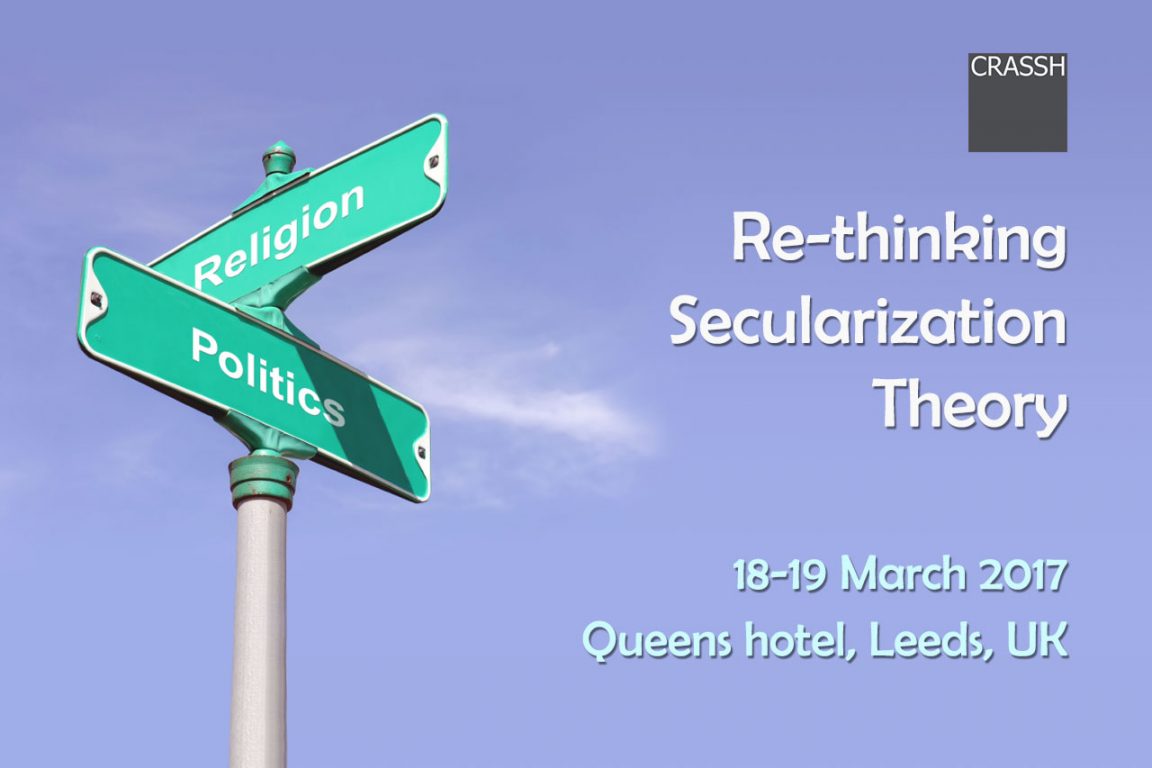Re-thinking Secularization Theory

About The Event
International Conference on Religion, Culture and Politics
Date: March 18-19, 2017
Venue: Queens hotel, City Square, Leeds, UK
Organizer: Centre for Research in Humanities and Social Sciences
Religion is often discussed through the eyes of the secularization theory; however, there is no agreement on what secularization is, or to what extent religion is present in our lives even though religion is as influential as ever. Whether we understand secularization as a decline of religious beliefs, privatization of religion, or as differentiation of the secular spheres and emancipation (Casanova 2006; Berger 2001), we still have to ask ourselves to what extent religion shapes our present lives…
However, religion also became connected with culture. For example, ethnic minorities in the West are often members of minority religions, questioned recently during debates on Brexit and the US elections. In that sense, some voiced that the cultural war won by the New Left and progressive forces has been lost and that white Christian population in both the US and the UK voted for Brexit and Donald Trump to protest against multiculturalism…On the other hand, in many countries of the Middle East Christian communities are being persecuted and even expelled from their countries, which then fuels anti-multicultural debates in the West.
In addition, religion is also becoming an industry for certain religions bring dietary requirements (e.g. kosher and halal), and the growth of halal and kosher consumption in some Western societies has brought to a situation that mainstream supermarkets now have shelves with religiously approved food products. In that sense, religion is also becoming a business.
Is religion then still influencing our lifestyle and choices we make? To what extent is religion influencing and shaping our everyday lives? What is the connection between religion and politics? Has multiculturalism failed? Has the secularization theory failed, and how do we move forward?
Papers are invited, but not limited to, for the following panels,
- Religion and everyday lives
- The influence of religion in national elections
- The influence of culture in national elections
- Media representation of religion and culture
- Religion and the Far Right
- Multiculturalism and the Cultural war, and the place of religion
- The New Left and the religion
- Living religion through food
- Secularization theory
- Religious denominations and differences in religious observance
- Christian religious activism and influence on politics
- Religion as business
- Islamophobia
- Anti-Semitism
Centre for Research in Humanities and Social Sciences is a private institution originally founded in December 2013 in Croatia (EU). Since July 2016 the Centre is registered in Leeds, UK.
Source: The Centre for Research in Social Sciences and Humanities
Location
Centre for Research in Humanities and Social Sciences


We're always eager to hear from you.
If you’d like to learn more about us or have a general comments and suggestions about the site, email us at